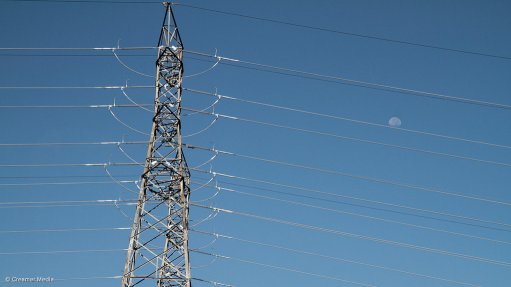
Photo by: Duane Daws
Eskom’s group executive for generation, Mongezi Ntsokolo, was at pains to assure South Africans that the utility was working hard to sort out the country's shortage in electricity supply, when addressing delegates at an African Utility Week panel discussion on Wednesday along with energy executives from Zimbabwe and Tanzania.
“We assure South Africans that together with our suppliers, 42 000 employees, implementers and manufacturers, we are working hard to sort out the [balance between supply and demand],” said Ntsokolo, adding that Eskom was working with its customers to lower demand, particularly over peak times in the morning and between 17:00 and 19:00.
South Africa, with a population of more than 49-million, had an electricity shortfall of 18 000 MW. For its neighbour, Zimbabwe, with a population of more than 14-million this figure was currently at between 600 MW and 700 MW, depending on weather conditions and demand, noted Zimbabwe Electricity Supply Authority (ZESA) CEO Joshua Chifamba.
In the short term, ZESA was trying to tighten up efficiency, while working on large power projects. It was also eyeing the Inga hydropower project in the Democratic Republic of Congo and development of natural gas as potential suppliers of energy.
“We have a systems development plan that is flexibile enough to take into account game-changers, including the Inga project and the development of natural gas.”
On the financial side, Chifamba advised that Zimbabwe had been ‘starved’ of credit lines, but had been innovative in raising capital.
The country also planned to put all customers, regardless of size, on the prepaid meter system. So far, the meter system had proved a success, with a secure income stream having been established.
“We are very pleased with it. If we put everyone on the system, we think the investment rating of our company will go up too, which means we’ll be able to attract capital,” Chifamba enthused.
Tanzania Electric Supply Company MD Felchesmi Mramba explained that expanding the country's power system was a key ingredient in growing its economy.
Tanzania had embarked on an ambitious programme to improve its generation, transmission and distribution capabilities. Apart from coal, it was also expanding into hydro, natural gas and renewable energy.
Tanzania was busy constructing a 540 km gas pipeline, which would add 4 000 MW to the grid and was scheduled to transmit gas in June/July this year.
The Tanzanian government had signed agreements for 100 MW of renewables, including solar, wind and minihydro, while it was also encouraging investment in geothermal energy.
Tanzania also planned to ramp up its transmission network.
According to Power Africa, the country currently had abundant indigenous sources of energy, which could be used to generate power. These included a hydropower potential of 4 700 MW, with only 12% realised at present, while Tanzania's geothermal resource potential could be as high as 650 MW.
The country's natural gas reserves were estimated to be 46.5-trillion cubic feet, equivalent to more than nine-billion barrels of oil.